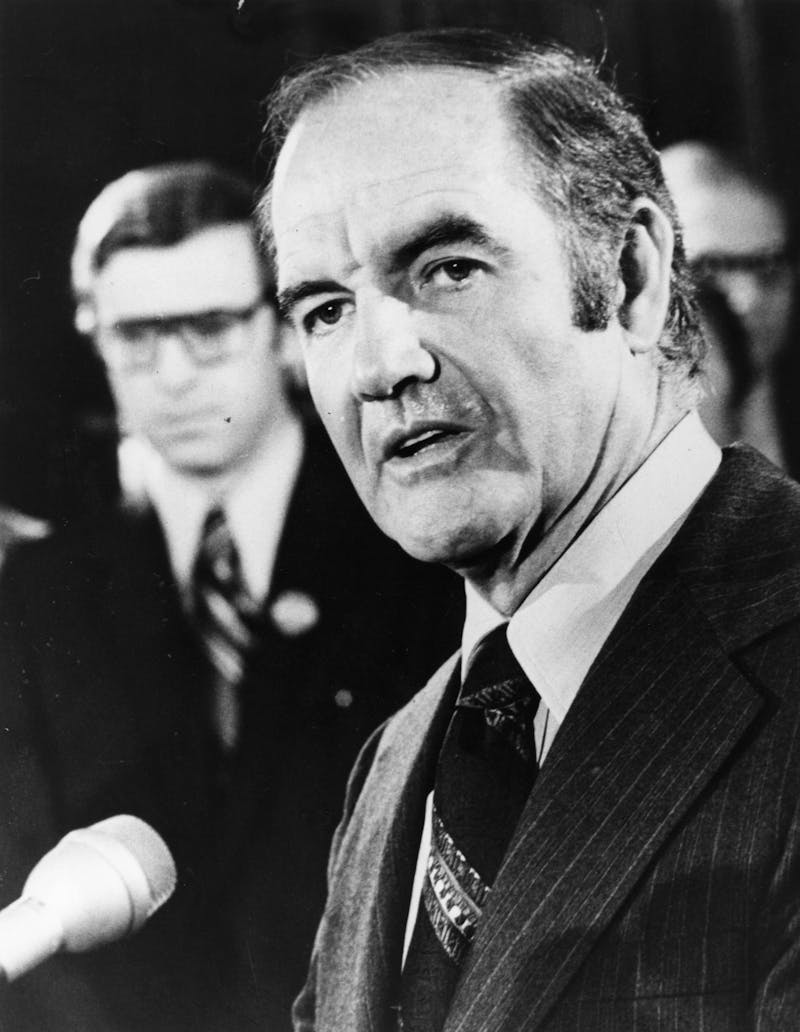Article I of the Constitution explains the role the Legislative branch is to play in the government as a whole and the nature of the powers granted to the Legislative Branch. Section 8 of Article 1 in particular lists over eighteen different powers granted to Congress. These include taxing, borrowing money, coining money, declaring war, and many more (see Section 8 for the complete list). However, Congress also serves a broader role in the government as a whole in that it contributes not only to the separation of powers but also serves as a check on the other two branches. The question of what Congress’ most important roles are is intriguing. I would argue its three most important roles are to serve as a check on the power of the executive branch, to levy taxes and to carry out the elastic clause.
Congress' most important role is that of being a check on the executive branch. Congress has the power to override presidential vetoes, and the power to impeach the president if he has committed an impeachable offense. Andrew Johnson, was impeached by Congress in 1868, for example, after he overstepped his executive authority by removing Secretary of War, Edwin Stanton, without Congress’ approval—an act which violated the Tenure of Office Act. In more modern years, Richard Nixon was nearly impeached as a result of the Watergate scandal. The impeachment process had begun but Nixon resigned before it could be completed. The Watergate scandal was another situation of the president abusing his authority. Nixon refused to turn over incriminating tapes by appealing to “executive privilege”. World history has shown consistently and exhaustively that people in power almost always seek to overstep their authority (and this almost always ends up harming those governed) Thus, Congress’ role as a check on the president is critical to the survival of the nation.
It can easily be argued that besides being a check on executive authority, the most foundational role of Congress is the power to levy taxes. It is likely this is why it appears first on the list of powers granted Congress in Section 8 of Article I. After all, it was the inability of the American government to impose a federal taxes under the Articles of Confederation which motivated the likes of Alexander Hamilton—desperate to preserve the nation—to draft the Constitution. Without the ability to tax, the federal government was essentially useless. It couldn’t repay debts or pay for a standing army (or do much of anything for that matter). Nearly all the responsibilities of Congress that follow in Section 8 require that it have the ability to tax. Thus, although taxing may not seem like its most pleasant responsibility, it is still its most foundational. The ability to levy taxes falls is a part of the broader power known as the “power of the purse”, which means that Congress has the power to tax and spend that tax money as it sees fit.
Finally, it can be argued that Congress’ third most important role—seen most out of the two above—is the role of making “necessary and proper” laws. This is the last of the roles spelled out in Section 8 of Article 1 at number 18 which is referred to as the Elastic clause or Necessary and Proper clause. It is also the most broad power given to Congress and gives it freedom beyond the seventeen specific powers spelled out in the Constitution. The age we live in today is vastly different than the age of the Framers and yet Congress still has the ability to make laws, even about the use of advances such as the internet. Without the elastic clause, Congress would be unable to meet the new situations that come with the modern age. The simple fact is that the vast majority of all laws on the books today are under the authority of the elastic clause.
Although Congress does not always fulfill these roles as it should or as would be appropriate, they are nonetheless, the most important roles Congress plays: balancing power in government, levying taxes to make government possible, and creating laws relevant to the particular situation the nation is in.



